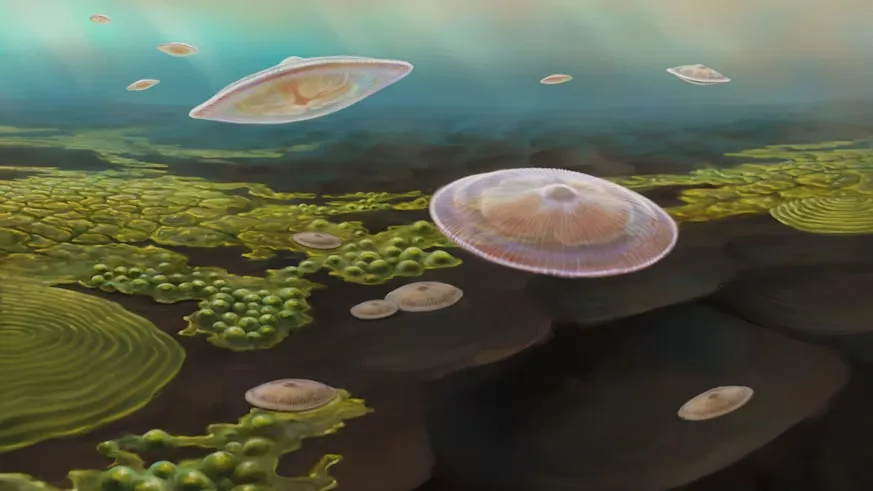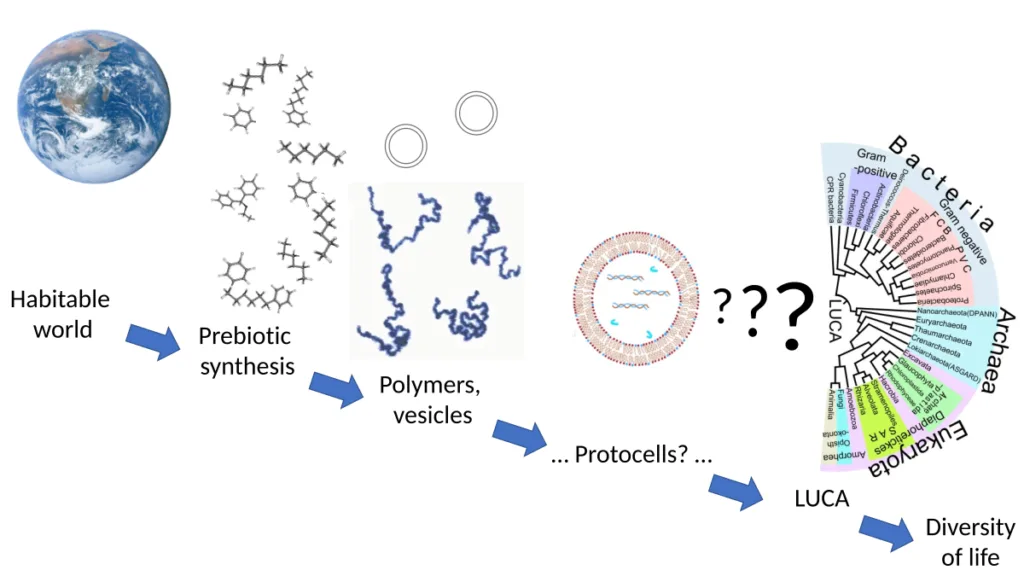The Start of Life Might Be Billions of Years Older Than We Knew!

When scientists gaze up at the stars, one of the first things they search for is water. It’s a fundamental ingredient for life as we know it, making it a crucial piece of the cosmic puzzle. However, recent groundbreaking discoveries have revealed that the universe wasn’t as dry as scientists once thought. Water, in fact, appeared much earlier than anyone expected—just 200 million years after the Big Bang, billions of years sooner than previous models predicted. This revelation, led by astrophysicist Dr. Daniel Whalen from the University of Portsmouth’s Institute of Cosmology and Gravitation, could change the way we view the timeline of life’s origins in the cosmos.
How Water Came to Be in the Early Universe
After the Big Bang, the universe was a vast, empty space filled only with hydrogen, helium, and a few other basic elements like lithium. Oxygen, which is necessary for forming water, didn’t exist yet. But this changed dramatically when the first stars, known as Population III stars, exploded in supernova events. These explosions generated oxygen, which then combined with hydrogen to form water.

Dr. Whalen and his team found that these early supernovae,Billions particularly core-collapse and pair-instability supernovae, created oxygen deep within their cores. When these stars exploded, they scattered oxygen into surrounding gas clouds, where it mixed with hydrogen, forming water molecules for the first time. This process happened much earlier than previously thought—before the first galaxies even began to form.
The Birth of Water-Rich Cosmic Clouds
Although the amount of water created in these early explosions was relatively small, it concentrated heavily in dense gas clouds. These clouds, known as molecular clouds, became the birthplaces of stars and, eventually, planets. Some of these early clouds contained water in concentrations comparable to what we see in our own solar system today.
Dr. Whalen pointed out that while the total amount of water Billions was modest, it was concentrated in the areas most likely to form stars and planets. This discovery suggests that even before galaxies fully formed, water-rich environments could have existed, setting the stage for life to emerge much earlier than previously believed.

A New Timeline for Life’s Origins
The implications of this discovery are profound. Water—one of the essential ingredients for life—appeared much earlier in the universe’s history, just 100-200 million years after the Big Bang. This reshapes our understanding of when life could have first emerged. Instead of a slow, gradual buildup toward habitability, the universe was surprisingly quick in setting up the conditions necessary for life.
Dr. Whalen emphasized how this discovery shifts our thinking: “This implies the conditions necessary for the formation of life were in place way earlier than we ever imagined.” What was once thought to be a long and slow journey toward habitability now looks more like a swift, dynamic process.

Confirming the Discovery with Simulations
To confirm their findings, Dr. Whalen’s team used advanced Billions numerical simulations to model these early supernova explosions. These simulations allowed scientists to pinpoint the exact moments when water molecules formed. This marks the first time anyone has modeled the creation of water during these early cosmic events.
The next step is to confirm these results with real-world observations. The James Webb Space Telescope, designed to look deep into the early universe, may provide the necessary data to verify these findings, further strengthening Billions the evidence for early cosmic water.
What This Means for the Search for Life
This discovery doesn’t just change how we think about water in the universe—it also has significant implications for the search for life beyond Earth. If water and planetary systems were Billions forming so soon after the Big Bang, it suggests that life—or at least the potential for life—could have existed far earlier than we ever imagined.
In the past, scientists believed there was a narrow window for life to emerge. But now, the early presence of Billions water expands this timeline, suggesting that the universe may have been ripe for life much sooner than previously thought. Although this discovery doesn’t confirm the existence of life elsewhere, it certainly makes the universe seem more promising.
Dr. Whalen summed it up perfectly: “Water was already a Billions key constituent of the first galaxies.” This simple yet profound statement shows just how essential water was to the universe’s formation from the very beginning, providing a critical foundation for what would eventually become life as we know it.
Conclusion: Water Was There from the Start
For centuries, scientists have wondered about the origins of life in the universe. With Billions this groundbreaking discovery, we now know that the building blocks for life were in place much earlier than anyone could have guessed. Water, the essence of life, was woven into the fabric of the cosmos almost immediately after the Big Bang, reshaping our understanding of life’s beginnings in the universe. This discovery not only changes the timeline for life’s emergence but also offers new hope for finding life beyond our planet.






